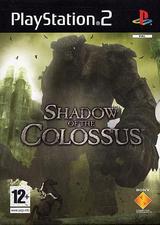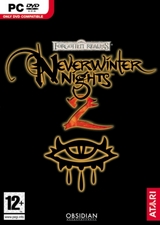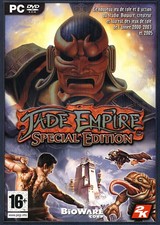IT, scripts, technical topics, legalese, marketing – video game localization can broach any subject and require a different approach every time. Efficient translators therefore need to be extremely multi-faceted to provide consistent quality.
Following are a few examples of this diversity, and the solutions I devised to translate them.
NOTE: This part is still under construction and will soon be expanded.
Scientific translation
Whoever said video games were uneducational? Titles such as Mass Effect prove them wrong. This particular case required substantial terminology research on astronomy, astrophysics, cosmology, quantum physics and nuclear physics.
As the subjective speed of light is raised within the field, objects outside will appear to red-shift, eventually becoming visible only to radio telescope antennae. High-energy electromagnetic sources normally hidden to the eye become visible in the high blue spectrum. As the speed of light continues to be raised, x-ray, gamma ray, and eventually cosmic ray sources become visible. Stars will be replaced by pulsars, the accretion discs of black holes, quasars, and gamma ray bursts.
To an outside observer, a ship within a mass effect drive envelope appears blue-shifted. If within a field that allows travel at twice the speed of light, any radiation it emits has twice the energy as normal. If the ship is in a field of about 200 times light speed, it radiates visible light as x-rays and gamma rays, and the infrared heat from the hull is blue-shifted up into the visible spectrum or higher.
Ships moving at FTL are visible at great distances, though their signature will only propagate at the speed of light.
Tandis que la vitesse subjective augmente dans le champ gravitationnel, les objets à l’extérieur paraîtront décalés vers le rouge, pour finalement n’être visibles qu’aux yeux des radiotélescopes. Les puissantes sources électromagnétiques normalement invisibles à l’œil nu seront visibles dans la partie supérieure du spectre bleu, à la limite de l’ultraviolet. Si la vitesse continue d’augmenter, les rayons X, gamma et cosmiques deviennent également visibles. Les étoiles sont remplacées par des pulsars, des accrétions de trous noirs, des quasars ou des sursauts gamma.
Pour un observateur extérieur, un vaisseau propulsé par un moteur gravitationnel apparaît décalé vers le violet. S’il voyage à deux fois la vitesse de la lumière, les radiations émises possèdent deux fois plus d’énergie que la normale. Si le vaisseau atteint 200 fois la vitesse de la lumière, il émet des rayons X et gamma visibles et la chaleur infrarouge dégagée par la coque atteint, voire dépasse le spectre visible.
Les vaisseaux qui se déplacent à vitesse supraluminique sont visibles de très loin, même si leur signature énergétique, elle, ne dépasse pas la vitesse de la lumière.
No matter how small, each planet in the game possesses its own detailed description.
Despite its great size, Jarfor is actually rather low-mass; the incredible heat of the star Hoc has caused its atmosphere to expand. In fact, Jarfor is so low-mass, it is tidally locked to Hoc. The temperature difference between the sunward “hot pole” and the dark side “cold pole” creates constant hurricane-force winds.
Orbital Period: 1.3 Earth Years
Radius: 63,169 km
Day Length: 1.3 Earth Years
Jarfor doit son statut de géante non à sa masse, très modeste, mais à la chaleur peu commune dégagée par l’étoile Hoc qui a entraîné l’expansion de son atmosphère. Pour tout dire, la masse de Jarfor est assez faible pour lui faire suivre une orbite synchrone. Le différentiel de température entre les pôles, l’un exposé à la lumière, l’autre non, crée en permanence un front orageux le long du terminateur.
Période de révolution : 1,3 année terrestre
Rayon : 63 169 km
Période de rotation : 1,3 année terrestre
Verse translation
To translate the following extracts from Dungeons and Dragons Online, I mostly used alexandrine verses. As the standard French metre in the Middle Ages, their classical, ‘epic’ quality is particularly called for in RPGs – as long as character restrictions allow it, which was the case here.
So cruel and grim and dire!
Caught in his winds our falt’ring bark
While black waves bore us higher.
Qui ballotta, cruelle, au gré de ses tourments,
Notre si frêle esquif voguant timidement,
De rouleau en rouleau, sans accalmie, sans cesse.
Fancy a haiku? Many translators would probably have failed to spot and faithfully retranslate its peculiar metre. I didn’t!
The stones lie quiet, wary.
Titans walked these roads.
Le roc se dresse à l’affût
Reflets de titans
Now for some bawdy time at the local inn, where there is beer aplenty and elvish bards sing of their gallant adventures.
A silver-tressed lass on Maradal’s wharf,
One wants to bed me, the other to wed me–
But I’d just as soon kiss an unshaven dwarf.
Une autre aux yeux d’argent au port de Maradal
L’une me veut pour amant, l’autre pour mari
Fi ! Plutôt embrasser un vieux nain racorni.
The next example is an exercise in style: cramming as many alliterations as possible within four lines of verse. I stand up to the challenge!
Writhing and wrathful, drew near the door
Which swung wide swiftly, revealing Rasharo
Battle-bedecked, and eager for gore
Etalé tout au long d’un tunnel tortueux
Quand dans un cliquetis d’acier acéré
Arrive Rasharo pour rosser le rampant
Idiolect adaptation
How do you localize a character who uses a particular dialect which, if translated literally, will have players squinting at their screens trying to make sense of this mess? Even worse, what if this very same character is an unrepentant caricature of the French stereotype, meaning a literal translation is liable to have some players jumping out of their seats in anger?
What you do is disarm the stereotype and transform it into something equally funny for a French audience. For instance, the following dialogue from The Bard’s Tale could be successfully turned into a dialogue a la Michel Audiard: the delightfully obsolete slang that results could also serve to justifiy why our dear caricatures are wearing those outrageous berets and outfits onscreen.
NOTE: the following translation is by definition a free adaptation and is therefore not suitable for all projects. Furthermore, while appropriate to the French market, it is not necessarily optimal for all French-speaking locales (Canada specifically). In such a case, I always request approval from both publisher and developer prior to translation.
Jacques: Oui, oui. He must be here for that very thing. Jean, you are so smart! You are, how they say, the smelliest fish in the drawer!
Bard: I think you mean the sharpest knife. And since I’ve never met you, the only thing I owe you is a view of my arse as I leave.
Jean: Wait, wait! Not so fast! Perhaps it is possible we could be mistaken…
Bard: There is no mistake, you two are wasting my time.
Jean: You have the manners of a peasant! But as I am in such an agreeable mood, I will forgive you your insult and offer instead for you a, how you say, a deal.
Jacques: Oh, Jean! Jean! Once again you prove we are the cleverest of brothers! Are we not the cleverest of brothers!? Are we not, how you say, sly as boogers?
Jean: Oui! We want to give you a pleasant little tune that will summon the sexiest of beasts to aid in combat. If you would do for us but one small favor, we would give it to you, tout suit.
Bard: All right. One small favor. One. What?
Jean: Tres Magnifique! We have a silver frog that was taken from us by Caitir and hidden under her bed! Bring that to us and we will give you your song.
Bard: Get it yourself; I’m not going on another wild goose chase for the two of you.
Jean: Who said anything about a goose you silly man! We are talking about a frog.
Jacques: Quite right! A frog Small and shiny. And so loveable and cute you know. Oh, Jean! I want it. You promised me you would get it for me and I want it!
Bard: All right. But this is it. No more funny business.
Jean: Oui! Of course! No more business that is funny. We will await your return!
Jacques : Ben forcément. J’vois pas pourquoi il se radinerait sinon. Ou bien faudrait qu’y soit salement braque, tu crois pas ?
Barde : Si j’ai bien compris, vous croyez que je vous dois de l’argent. Mais vu qu’on ne s’est jamais rencontré, votre histoire de dette, vous pouvez vous la carrer quelque part.
Jean : Décambute pas tout de suite ! Peut-être qu’on se goure, va savoir…
Barde : Vous ne vous “gourez” pas, vous me faites juste perdre mon temps.
Jean : Fais pas ton nabus, l’ami ! T’as de la chance que j’te dessoude pas illico vu comment qu’tu nous causes. Mais j’suis bien luné aujourd’hui, alors j’te propose une combine.
Jacques : Ben dis donc, Jean, tu nous la joues sentimental ? T’as vraiment de la chance, le mariole. Parce qu’avec nous, normalement, c’est l’arme à gauche direct.
Jean : Bon, v’là le plan : tu nous files un petit coup de pouce de rien du tout, et nous, on te refourgue une rengaine qui te permet d’invoquer un larbin bien choucard au combat.
Barde : Très bien, un petit service. Un. Lequel ?
Jean : Bonnard. Alors j’t’explique : cette greluche de Caitir nous a engourdi une grenouille d’argent qu’elle garde sous son plumard. Rapporte-la-nous et on te refile le morceau.
Barde : Débrouillez-vous, je ne vais pas aller chasser une autre chimère pour vos beaux yeux.
Jean : Pas une chimère, une grenouille. Faut te jacter en engliche pour que tu piges ? A froggie!
Jacques : Yes, exactly. Une laubé de grenouille qui brille comme du carbure. Ben mon Jeannot, j’sais pas pour toi, mais moi j’en ai ras les roustons de poireauter pour l’avoir.
Barde : Très bien, mais c’est fini, plus de sale blague.
Jean : Ouais, ouais. J’te l’ai dit, on est réglos. Bon, ben on attend icigo que tu te repointes.










